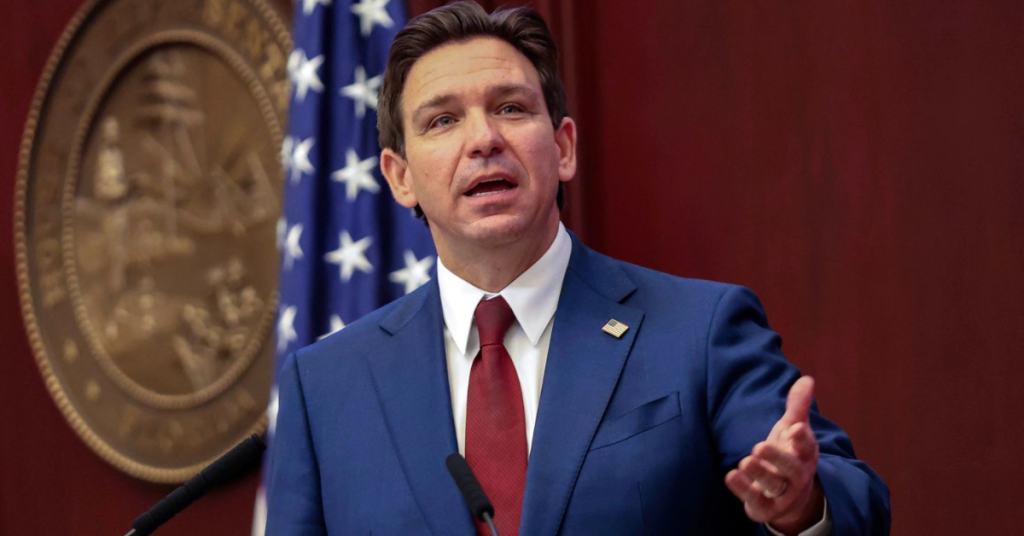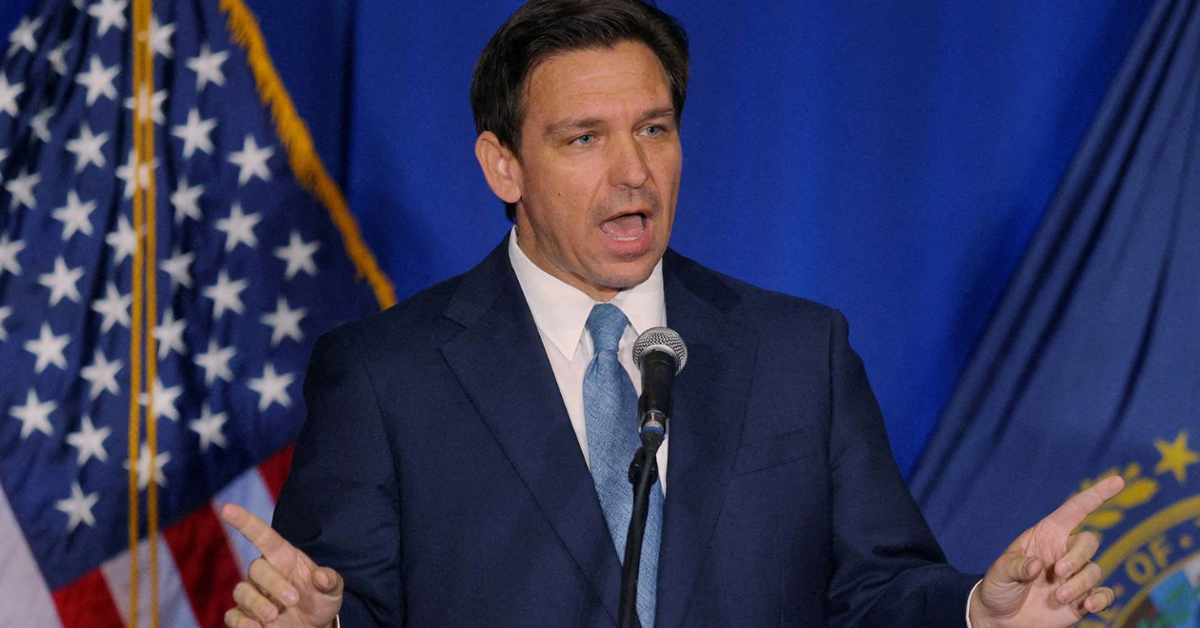On February 13, 2025, Florida Governor Ron DeSantis signed into law a controversial bill that makes it a first-degree misdemeanour for individuals to enter Florida as “unauthorised aliens.” This law also imposes additional penalties for reentry, further intensifying Florida’s stance on illegal immigration. While the law was a significant move in DeSantis’ broader immigration crackdown, it has met with considerable resistance, both from the legal system and law enforcement officials within the state.
On April 4, U.S. District Court Judge Kathleen Williams issued a temporary order blocking the law, effectively preventing its enforcement for the time being. This order resulted from legal challenges to the law, with groups such as the Florida ACLU, the Community Justice Project, and Americans for Immigrant Justice joining the fight in court.
Despite the ruling from the judge, however, Florida Attorney General James Uthmeier issued a directive on April 23 telling Florida law enforcement agencies that they should not be deterred from enforcing the law, which had already resulted in arrests since its passage.
This directive from Uthmeier, a staunch ally of Governor DeSantis, has sparked a division among Florida’s law enforcement community, particularly with Sheriff Bob Gualtieri of Pinellas County. Despite Uthmeier’s insistence that the law should be enforced, Gualtieri has publicly refused to comply with the order, making it clear that he will follow the court’s ruling and will not arrest anyone under the law.
In an interview with Florida Phoenix reporter Jackie Llanos, Gualtieri expressed his firm position. He said, “We take our direction on something like that from the judge, not from anybody else.” Gualtieri’s stance is not just a defiance of Uthmeier’s letter, but also a clear acknowledgement of the legal process and respect for the judicial branch’s authority.
The sheriff’s decision is significant because it highlights the tension between elected officials, like DeSantis and Uthmeier, and local law enforcement, who are often tasked with implementing these policies.
Despite the legal challenges and the opposition within the law enforcement community, DeSantis has been outspoken in his criticism of the judge’s decision. He has repeatedly referred to Judge Williams as an “activist judge,” accusing her of overstepping her role and blocking a law that he argues is essential to Florida’s efforts to curb illegal immigration.
On April 23, DeSantis posted on X (formerly known as Twitter), reaffirming his commitment to the law and emphasising his view that Florida is leading the charge on immigration enforcement. He wrote, “The mission continues. Immigration law must be enforced, and FL is leading on working with the Trump administration to get it done.”
DeSantis’ post on social media also made it clear that he views this legal setback as only a temporary obstacle. The governor is known for his hardline stance on immigration and has consistently pushed for policies that crack down on illegal immigration in Florida.
His comments were echoed by Uthmeier, who stated in his letter to law enforcement, “I cannot prevent you from enforcing §§811.102 and 811.103, where there remains no judicial order that properly restrains you from doing so.” Essentially, Uthmeier was suggesting that law enforcement officials could proceed with enforcing the law in the absence of a permanent judicial ruling blocking it.
However, this letter and Uthmeier’s support of DeSantis’ directive have been met with criticism from legal experts and advocacy groups. Alana Greer, the director of the Community Justice Project, was particularly vocal about the Attorney General’s letter.

She pointed out that the federal judge had already issued not one, but two clear and direct orders to stop the enforcement of the law. Greer expressed deep concern over the possibility that Floridians could continue to be arrested under what she described as an “unconstitutional statute.” She added, “We will be back in court to ensure their rights are protected.”
Greer’s statement underscores the legal complexity of the situation. While Uthmeier’s letter and DeSantis’ rhetoric suggest that the law could continue to be enforced, Judge Williams’ ruling remains in place for now. The ongoing legal battle over this law will likely continue for some time, as both sides prepare for further litigation. Legal challenges to the law could take months or even years to resolve, especially if it eventually reaches higher courts for final rulings.
This situation also reveals the broader implications of the law’s enforcement for local law enforcement agencies. While some sheriffs and police departments may follow Uthmeier’s directives and proceed with arrests, others, like Gualtieri, may decide to disregard these instructions in favour of the court’s ruling. The issue of enforcement could become a point of tension between state and local law enforcement officials, further complicating the state’s ability to implement the law effectively.
As the legal challenges to this law continue, the Florida ACLU and other organisations fighting against the bill have vowed to stay engaged in the case. The ACLU has already filed multiple motions challenging the law, arguing that it infringes on the rights of immigrants and violates constitutional protections.
If the law eventually passes legal scrutiny, it could set a significant precedent for how immigration laws are enforced at the state level, particularly in states like Florida, which has become a flashpoint in the national debate over immigration policy.
Sheriff Gualtieri’s refusal to enforce the law represents a small but significant act of defiance in the ongoing fight over immigration law in Florida. His decision to follow the court’s order underscores the crucial role that local officials play in enforcing rules, particularly when those laws are challenged in court. It also serves as a reminder that the legal system, rather than political pressure, should ultimately determine the constitutionality of laws and their enforcement.
Disclaimer: This article has been meticulously fact-checked by our team to ensure accuracy and uphold transparency. We strive to deliver trustworthy and dependable content to our readers.


